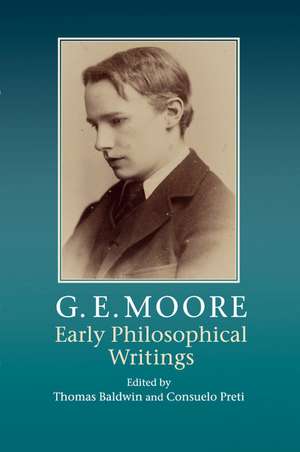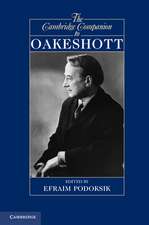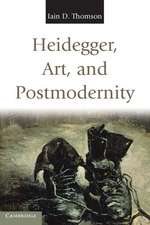G. E. Moore: Early Philosophical Writings
Editat de Thomas Baldwin, Consuelo Pretien Limba Engleză Paperback – 30 sep 2015
| Toate formatele și edițiile | Preț | Express |
|---|---|---|
| Paperback (1) | 299.58 lei 6-8 săpt. | |
| Cambridge University Press – 30 sep 2015 | 299.58 lei 6-8 săpt. | |
| Hardback (1) | 566.98 lei 6-8 săpt. | |
| Cambridge University Press – 30 mar 2011 | 566.98 lei 6-8 săpt. |
Preț: 299.58 lei
Nou
Puncte Express: 449
Preț estimativ în valută:
57.32€ • 59.85$ • 47.44£
57.32€ • 59.85$ • 47.44£
Carte tipărită la comandă
Livrare economică 04-18 aprilie
Preluare comenzi: 021 569.72.76
Specificații
ISBN-13: 9781107559349
ISBN-10: 1107559340
Pagini: 338
Ilustrații: 1 b/w illus.
Dimensiuni: 153 x 230 x 18 mm
Greutate: 0.45 kg
Editura: Cambridge University Press
Colecția Cambridge University Press
Locul publicării:New York, United States
ISBN-10: 1107559340
Pagini: 338
Ilustrații: 1 b/w illus.
Dimensiuni: 153 x 230 x 18 mm
Greutate: 0.45 kg
Editura: Cambridge University Press
Colecția Cambridge University Press
Locul publicării:New York, United States
Cuprins
1. Editors' introduction; 2. Moore's 1897 dissertation; 3. Reports by Sidgwick and Caird; 4. Moore's 1898 dissertation; 5. Report by Bosanquet.
Descriere
This edition presents Moore's fellowship dissertations of 1897 and 1898, showing his influential break with idealism and the development of logical analysis.
















